Search Results
Search
Filter results
Advanced Filters
Your search returned 883 Solutions
-
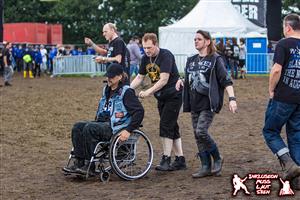
Buddy service for jointly attending cultural events
The organization originally developed from an online music magazine (New Metal Media), which provided information about accessible cultural events. Its European-wide buddy service is free of charge and allows persons with disabilities to enjoy events accompanied by a like-minded companion.
Inklusion Muss Laut Sein UG, Germany -
MoMA has won international respect for their unique efforts to make their extensive resources, collection and
programs accessible to visitors with disabilities. Training on inclusive arts education is given to external institutions worldwide and disability awareness and equality training is delivered in-house.
MoMA is committed to providing the most inclusive environment for its diverse visitors. The Access Program offer a variety of programs for visitors with different disabilities. Access Program staff have developed training resources on providing quality art experiences and delivered workshops throughout the world.
MOMA - Museum of Modern Art, Inclusive art education at the MoMA, New York, United States of America -
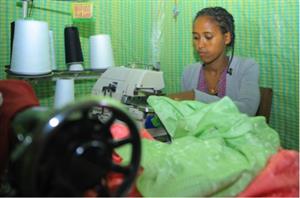
Alternative ways for successful job applications
Since 2013, ECDD has been collaborating with public vocational training colleges on the "Inclusive Skills Training and Employment Programme for and by Persons with Disabilities" to facilitate training opportunities for people with disabilities, including with intellectual disabilities. By 2016, ISTEP had assisted more than 1,500 beneficiaries.
ECDD - Ethiopian Center for Disability and Development, Ethiopia -
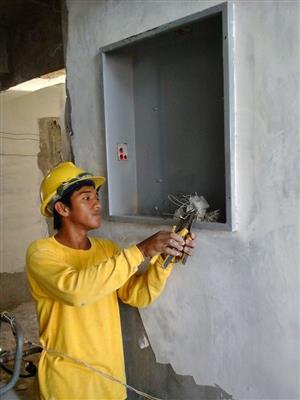
A “sales unit” to connect Technical Vocational Education and Training (TVET) and the business world
To minimize the gap between Technical Vocational Education and Training (TVET) and the job market, Woord en Daad developed a model called Job and Business Services. Like a sales unit JBS provides regular market assessments, coaching and training for students as well as feedback from the job market.
Woord en Daad, Job and Business Services (JBS) model, Philippines -
Livelihoods resource centres
As "one-stop-shops" Livelihoods Resource Centres (LRCs) provide training, career guidance and links between employees and employers. LRCs are delivered through local partner organisations and are unique in providing the full range of support that disabled people need when looking for jobs or becoming self-employed.
Leonard Cheshire Disability, Livelihoods resource centres, United Kingdom -
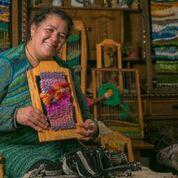
Large-scale rehabilitation project provided by an insurance company
Started in 2009, the MAIS model aims to minimize the difficulties faced by people who have incurred a disability as the result of a labour accident. To this end, it brings together all relevant stakeholders from the individual’s environment, including employers, family, community as well as social and medical institutions.
Mutual de Seguridad C.Ch.C, Modelo de Atención Integral en Salud (MAIS), Chile -
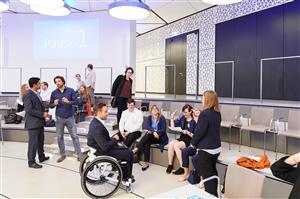
Job-matching based on coaching for students with disabilities and company-partnering
The participating talents receive coaching and make contact with interested companies. Companies gain know-how in the field of inclusion and employment of people with disabilities. Since the start of the programme in 2016, 130 students and 45 companies have completed the self-financed programmes.
myAbility Social Enterprise GmbH, myAbility Talent® Programme, Austria -
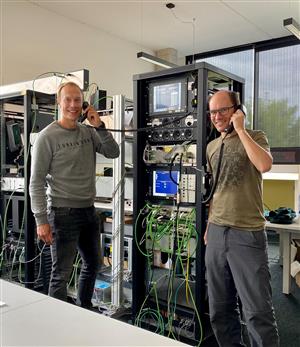
Employing people on the autism spectrum and hiring them out as consultants
Passwerk recruits people from the autism spectrum as consultants, places them in a suitable job, and offers them long-term job coaching. Passwerk consultants are specialized in IT services. In 2020 the company employed more than 120 consultants, and it has worked with more than 200 clients since 2008.
Passwerk, Passwerk, Belgium -
Empowering school girls with disabilities
P2F is a short-term vocational education programme for girls with disabilities aged 14 to 21 years old. Girls participate in an 18-week class in their high schools designed to teach vocational skills. The curriculum covers four broad areas: self-determination, disability knowledge, gender awareness, and career and college readiness.
University of Oregon, Paths 2 the Future, United States of America
- Page 1
- Page 2
- Page 3
- Page 4
- Page 5
- Page 6
- Page 7
- Page 8
- Page 9
- Page 10
- Page 11
- Page 12
- Page 13
- Page 14
- Page 15
- Page 16
- Page 17
- Page 18
- Page 19
- Page 20
- Page 21
- Page 22
- Page 23
- Page 24
- Page 25
- Page 26
- Page 27
- Page 28
- Page 29
- Page 30
- Page 31
- Page 32
- Page 33
- Page 34
- Page 35
- Page 36
- Page 37
- Page 38
- Page 39
- Page 40
- Page 41
- Page 42
- Page 43
- Page 44
- Page 45
- Page 46
- Page 47
- Page 48
- Page 49
- Page 50
- Page 51
- Page 52
- Page 53
- Page 54
- Page 55
- Page 56
- Page 57
- Page 58
- Page 59
- Page 60
- Page 61
- Page 62
- Page 63
- Page 64
- Page 65
- Page 66
- Page 67
- Page 68
- Page 69
- Page 70
- Page 71
- Page 72
- Page 73
- Page 74
- Page 75
- Page 76
- Page 77
- Page 78
- Page 79
- Page 80
- Page 81
- Page 82
- Page 83
- Page 84
- Page 85
- Page 86
- Page 87
- Page 88
- Page 89